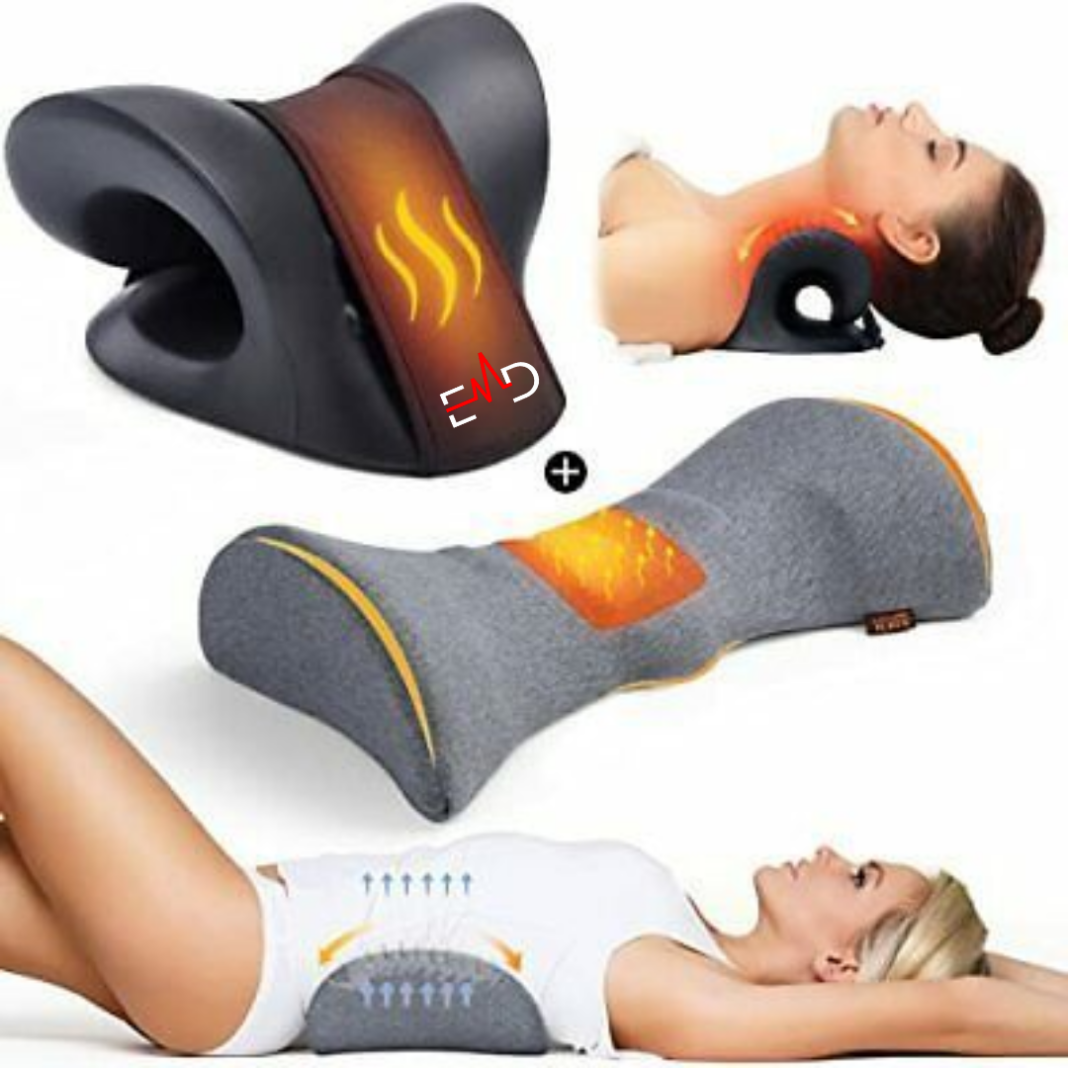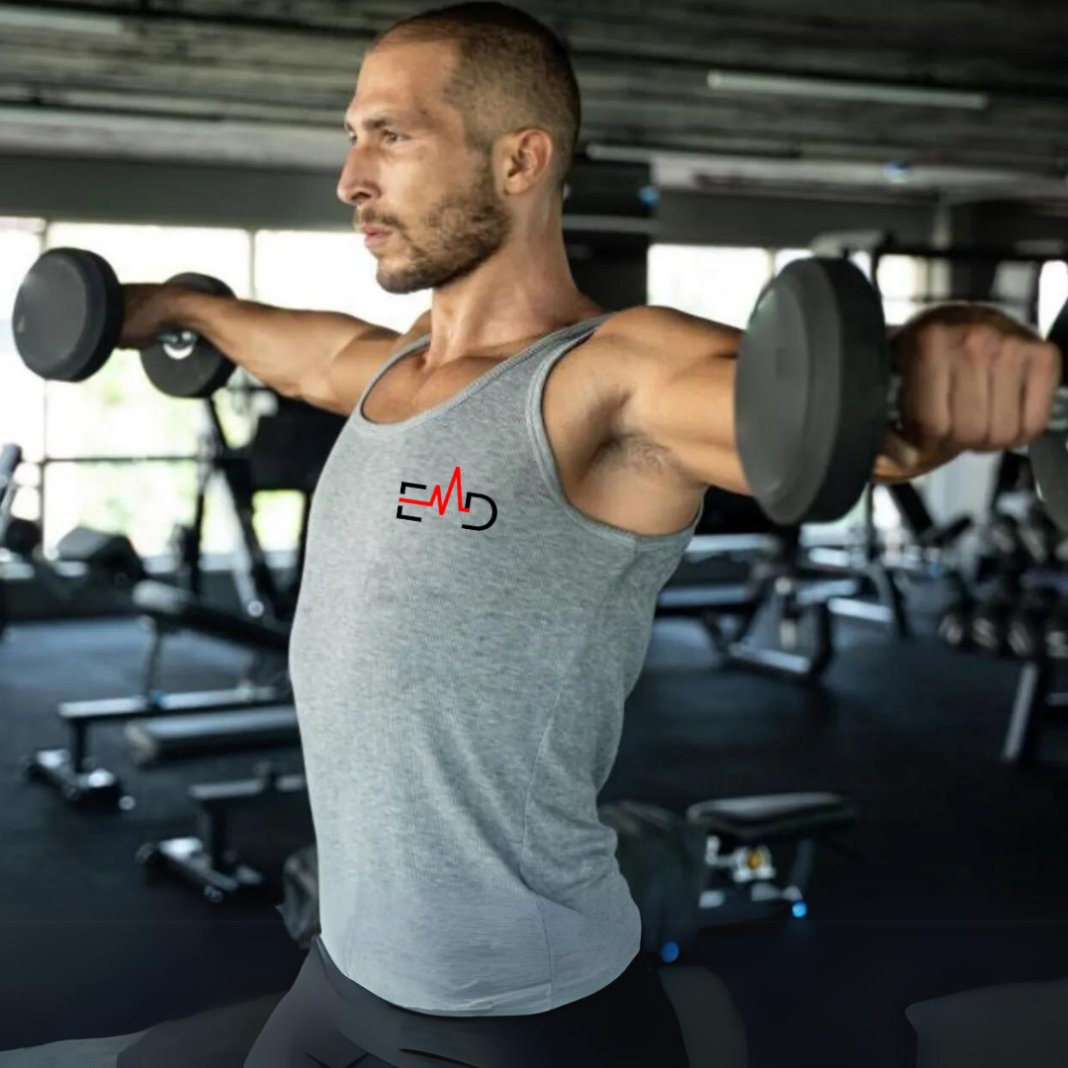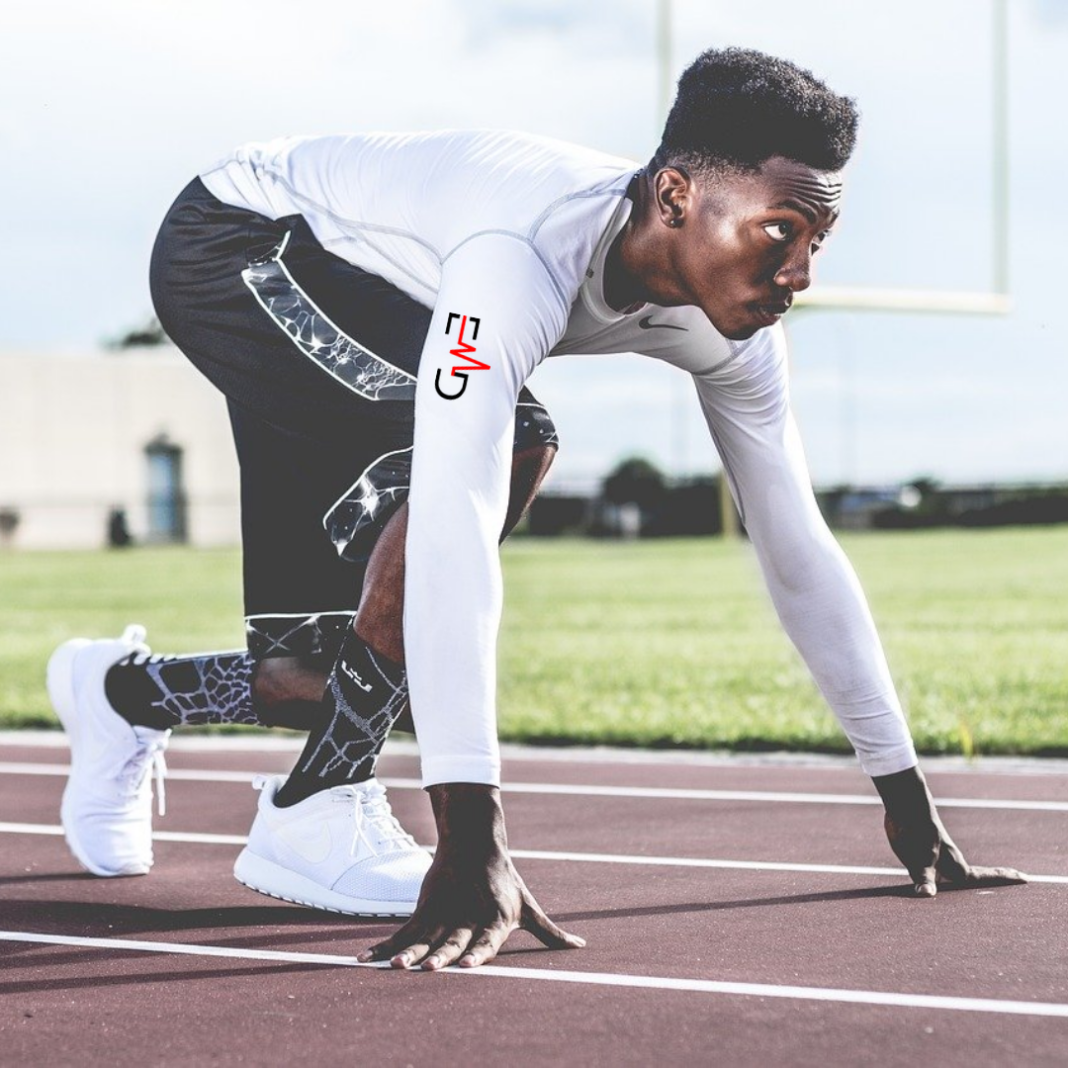Exercise Daily – Neck pain can be a nuisance, affecting our daily lives and productivity. Finding relief, whether from long hours at the desk, poor posture, or stress, is essential. Neck stretchers are effective tools for alleviating discomfort and enhancing neck flexibility. This article will explore the top seven neck stretchers in 2023 that can provide much-needed relief and aid in reducing neck pain.
Neck stretchers, or cervical traction devices, are designed to alleviate neck pain, stiffness, and tension by gently stretching and decompressing the cervical spine. These devices come in various shapes and sizes, offering diverse functionalities to cater to different needs. They aim to enhance blood circulation, reduce muscle tension, and promote relaxation in the neck and shoulder area.
Benefits of Using Neck Stretchers
Neck stretchers offer multifaceted benefits beyond pain relief. They help improve posture, reduce muscle tension, and enhance neck flexibility. Regular use can contribute to better sleep quality, increased mobility, and a sense of relaxation in the neck muscles, promoting overall well-being.
Neck stretchers, also known as cervical traction devices, offer various advantages beyond pain relief. Here are the key benefits of incorporating neck stretchers into your routine:
1. Pain Relief and Muscle Relaxation:
- Alleviates Neck Discomfort: Neck stretchers provide gentle traction, relieving pressure on the cervical spine and reducing neck pain caused by muscle tension, stiffness, or poor posture.
- Muscle Relaxation: The stretching helps relax the neck muscles, easing tightness and promoting relaxation and comfort.
2. Enhanced Neck Flexibility and Range of Motion:
- Improves Flexibility: Regular neck stretchers can enhance flexibility by stretching the cervical area’s soft tissues, ligaments, and muscles.
- Increases Range of Motion: Increased flexibility translates to a broader range of motion in the neck, allowing for easier movement and reduced stiffness.
3. Improved Posture and Spinal Alignment:
- Promotes Proper Posture: By decompressing the spine and realigning the vertebrae, neck stretchers aid in correcting poor posture habits, leading to better spinal alignment.
- Reduces Forward Head Posture: Continuous use can counteract the effects of “tech neck” or forward head posture, common in individuals who spend extended periods looking at screens.
4. Reduction in Headaches and Tension:
- Eases Tension Headaches: Relieving pressure in the neck can alleviate tension headaches caused by muscle tightness or stress.
- Minimizes Stress and Fatigue: Regular use promotes relaxation, reducing overall stress and fatigue often associated with persistent neck discomfort.
5. Aids in Recovery and Rehabilitation:
- Supports Healing Process: Neck stretchers can assist in the recovery from neck injuries or strains by providing gentle traction and support to the affected area.
- Complements Rehabilitation: They are often used as a supportive tool in rehabilitation programs to restore neck function and mobility.
6. Enhanced Blood Circulation and Nerve Function:
- Improves Blood Flow: By reducing compression on blood vessels, the increased blood circulation to the neck area helps nourish tissues and expel toxins.
- Optimizes Nerve Function: Relieving pressure on nerves can reduce nerve impingement or compression symptoms.
7. Convenience and Cost-Effectiveness:
- Accessible and Portable: Neck stretchers come in various portable designs, making them convenient for home use or traveling.
- Cost-Effective Solution: Compared to frequent professional treatments, neck stretchers offer a cost-effective alternative for managing neck discomfort.
8. Potential for Better Sleep Quality:
- Reduces Nighttime Discomfort: Using neck stretchers before bed can alleviate nighttime discomfort, potentially leading to better sleep quality and reduced sleep disturbances.
7 Best Neck Stretchers for 2023
1. ALPHAY Dynamic Cervical Neck Traction Device
The ALPHAY Dynamic Cervical Neck Traction Device is a versatile and effective tool for relieving neck pain and improving neck flexibility. It features a dynamic airbag that provides gentle traction and massage, heat therapy, and electrotherapy to promote relaxation and pain relief. The device is easy to use and can be used at home or on the go.
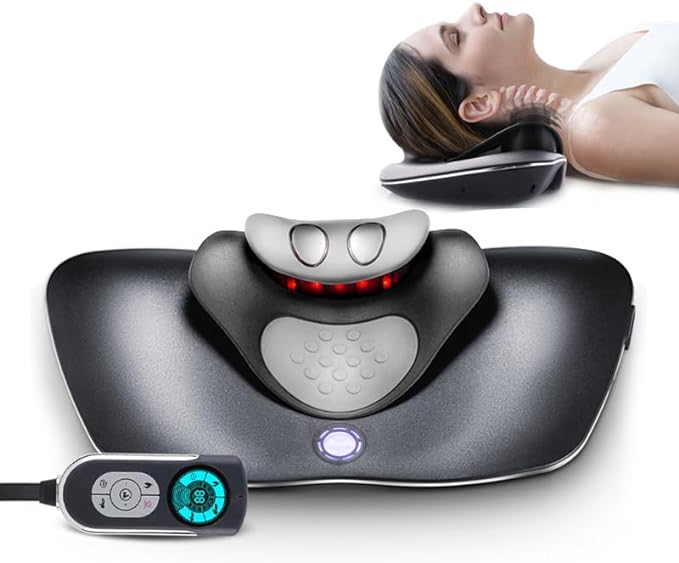
Features:
- Dynamic airbag traction for gentle decompression
- Heat therapy for muscle relaxation
- Electrotherapy for pain relief
- Easy to use and portable
Pros and Cons:
Pros:
- Effective for relieving neck pain and improving flexibility
- Comfortable to use
- Versatile with multiple therapy options
- Portable for use at home or on the go
Cons:
- Some users may find the traction too gentle
- The device can be a bit noisy
2. Neck Stretcher for Neck Pain Relief
This neck stretcher is made of durable, comfortable foam that supports the neck and provides gentle traction to relieve pain and tension. The stretcher is easy to use and can be used while lying down or sitting.
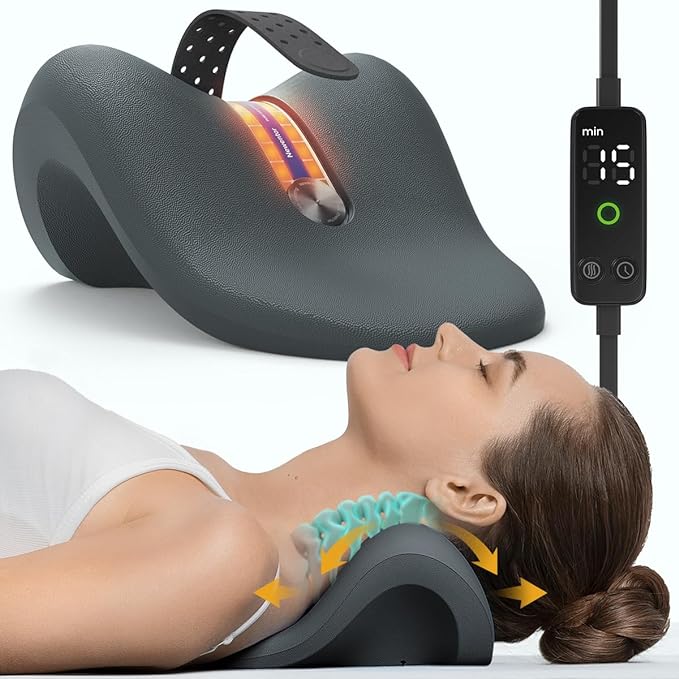
Features:
- Made of durable and comfortable foam
- Provides gentle traction to relieve pain and tension
- Easy to use and portable
- It can be used while lying down or sitting
Pros and Cons:
Pros:
- Effective for relieving neck pain
- Comfortable to use
- Portable and easy to store
- Affordable
Cons:
- It may not be as effective for severe pain
- Some users may find the traction too gentle
- The stretcher is not adjustable
3. VELPEAU Cervical Neck Traction Device
The VELPEAU Cervical Neck Traction Device is a lightweight and portable device that provides gentle traction to relieve neck pain and improve posture. The device is adjustable to fit most neck sizes and can be used while sitting or lying down.
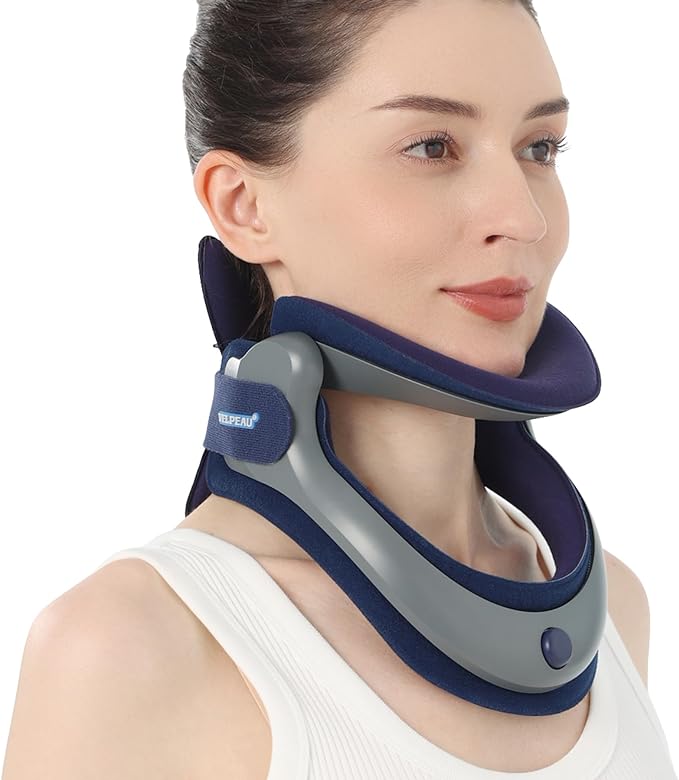
Features:
- Lightweight and portable
- Provides gentle traction to relieve pain and improve posture
- Adjustable to fit most neck sizes
- It can be used while sitting or lying down
Pros and Cons:
Pros:
- Effective for relieving neck pain and improving posture
- Lightweight and portable
- Adjustable for a comfortable fit
- It can be used while watching TV, reading, or working on a computer
Cons:
- Some users may find the traction too gentle
- The device can be a bit noisy
- The straps can be a bit difficult to adjust
4. The Original Neck Hammock Neck Stretcher
The Original Neck Hammock Neck Stretcher is a simple and effective tool for relieving neck pain and improving flexibility. The hammock is a durable fabric that supports the neck and provides gentle traction. The hammock is easy to use and can be used while lying down or sitting.
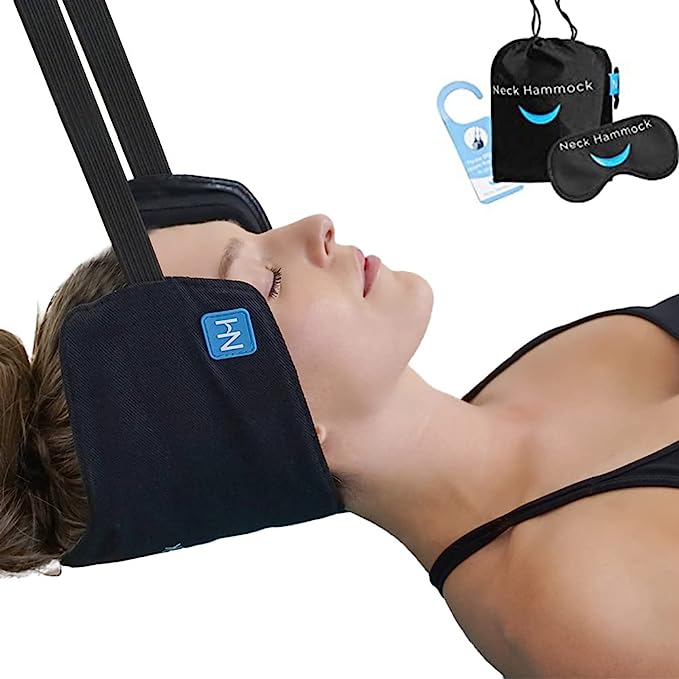
Features:
- Made of durable fabric
- Provides gentle traction to relieve pain and improve flexibility
- Easy to use and portable
- It can be used while lying down or sitting
Pros and Cons:
Pros:
- Effective for relieving neck pain
- Comfortable to use
- Portable and easy to store
- Affordable
Cons:
- It may not be as effective for severe pain
- Some users may find the traction too gentle
- The hammock is not adjustable
5. Elviros Cervical Memory Foam Contour Pillows for Neck
The Elviros Cervical Memory Foam Contour Pillows for the Neck support the neck and provide proper alignment while sleeping. The pillows are made of memory foam that conforms to the head and neck shape, providing cushioning and support. The pillows are also hypoallergenic and dust-mite resistant.
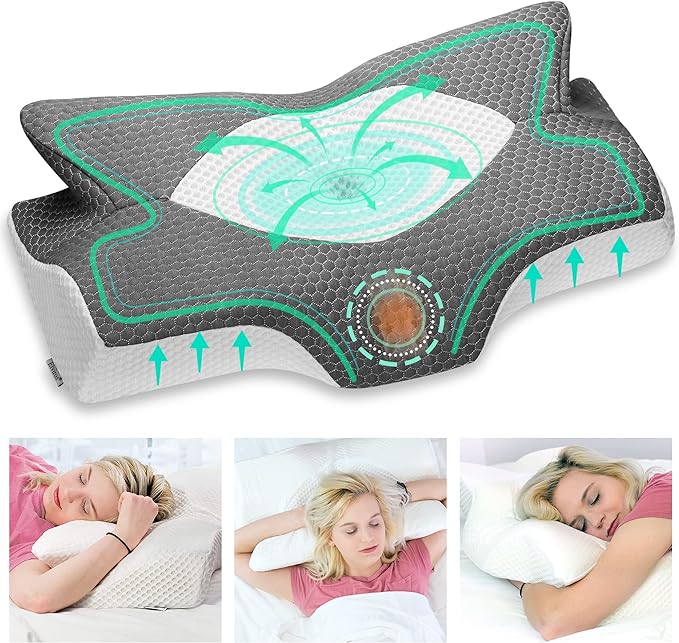
Features:
- Made of memory foam
- Provides proper alignment and support for the neck
- Hypoallergenic and dust mite-resistant
- Available in a variety of sizes
Pros and Cons:
Pros:
- Effective for relieving neck pain and improving sleep
- Comfortable and supportive
- Hypoallergenic and dust mite-resistant
- Available in a variety of sizes to fit different neck sizes
Cons:
- It may be too firm for some users
- The memory foam can retain heat
- The pillows can be a bit bulky
6. Tinhin 3S Heated Neck Stretcher for 9X Pain Relief
The Tinhin 3S Heated Neck Stretcher is a device that combines cervical traction, heat therapy, and magnetic therapy to relieve neck pain. The stretcher is a durable, comfortable foam that supports the neck and provides gentle traction. The stretcher also features heating pads and magnets to promote relaxation and pain relief.
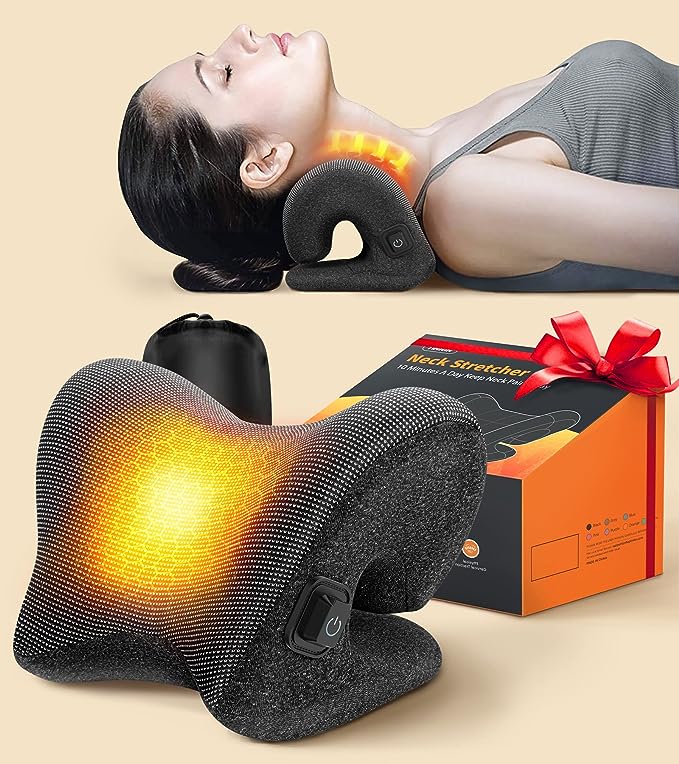
Features:
- Combines cervical traction, heat therapy, and magnetic therapy
- Made of durable and comfortable foam
- Provides gentle traction to relieve pain and improve flexibility
- Heating pads for muscle relaxation
- Magnets for pain relief
- Easy to use and portable
Pros and Cons:
Pros:
- Effective for relieving neck pain
- Comfortable to use
- Multiple therapy options to target different types of pain
- Portable for use at home or on the go
Cons:
- Some users may find the traction too gentle
- The device can be a bit bulky
- The battery life may be short
7. RISURRY Cervical Neck Traction Device, Air Pump Neck Brace
The RISURRY Cervical Neck Traction Device is an inflatable device that provides gentle traction to relieve neck pain. The device features an air pump that inflates the device to the desired level of traction. The device is also adjustable to fit most neck sizes.
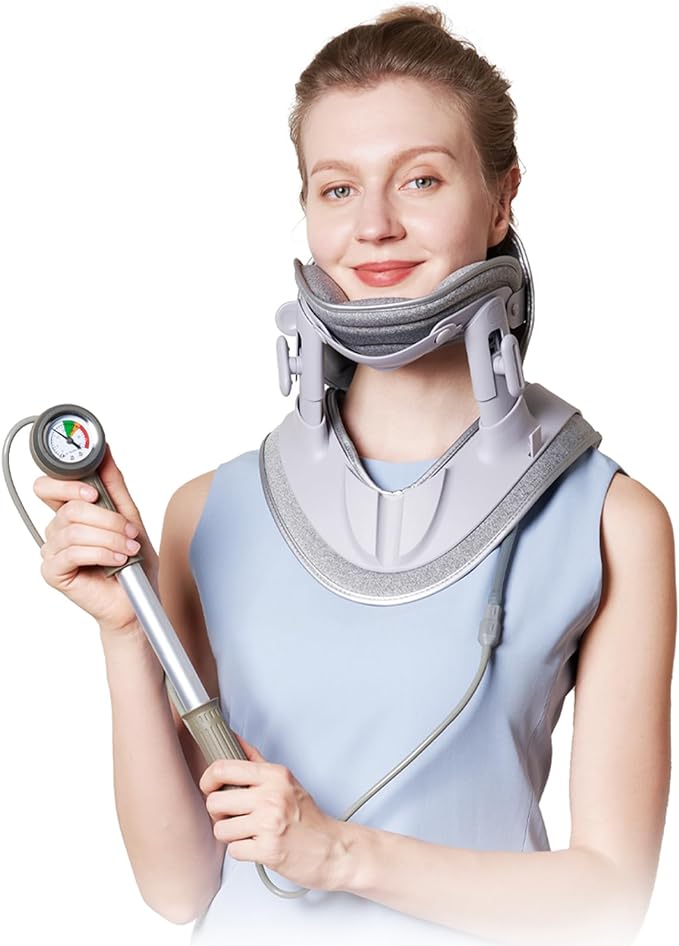
Features:
- Inflatable device for gentle traction
- Air pump for adjustable traction
- Adjustable to fit most neck sizes
- It can be used while sitting or lying down
Pros and Cons:
Pros:
- Effective for relieving neck pain
- Easy to use and adjust
- Comfortable to wear
- Portable for use at home or on the go
Cons:
- Some users may find the traction too gentle
- The device can be a bit noisy
- The air pump can be difficult to use
Factors to Consider Before Buying
Before purchasing a neck stretcher, several factors warrant consideration. These include adjustable settings, comfort level, material quality, ease of use, portability, and whether it suits specific neck conditions. Understanding these factors ensures choosing the most suitable device that meets individual needs.
Selecting the right neck stretcher involves considering various factors to ensure its effectiveness and suitability for your needs. Here are crucial aspects to ponder before making a purchase:
1. Adjustability and Fit:
- Customizable Settings: Look for neck stretchers with adjustable settings for different neck sizes and preferences.
- Proper Fit: Ensure the stretcher fits comfortably around your neck without causing undue pressure or discomfort.
2. Comfort and Material Quality:
- Padding and Material: Check for adequate padding and a soft, durable material that feels comfortable against the skin.
- Supportive Design: Choose a stretcher that adequately supports the neck area without causing strain or irritation.
3. Ease of Use and Portability:
- User-Friendly Design: Opt for an easy stretcher to assemble, use, and adjust according to your comfort level.
- Portability: Consider the device’s portability if you intend to use it while traveling or in different settings.
4. Safety Features and Guidelines:
- Safety Precautions: Ensure the stretcher has clear instructions and safety guidelines for proper usage.
- Quality Standards: Look for products that adhere to quality and safety standards to minimize the risk of injury.
5. Effectiveness and Intended Purpose:
- Specific Needs: Determine if the stretcher addresses your specific neck issues, whether for pain relief, posture correction, or rehabilitation purposes.
- Effectiveness: Research user reviews or consult healthcare professionals to gauge the device’s effectiveness in relieving neck discomfort.
6. Versatility and Additional Features:
- Additional Functions: Some stretchers may offer added features such as heat therapy, massage functions, or multiple traction settings. Assess if these features align with your requirements.
- Versatility: Consider if the device can be used in various positions (sitting, lying down) or if it accommodates different neck conditions.
7. Price and Warranty:
- Value for Money: Compare prices while considering the device’s quality, features, and benefits to ensure you’re getting value for your investment.
- Warranty and Customer Support: Check for warranty coverage and reliable customer support in case of any issues or concerns.
8. Professional Advice and Recommendations:
- Consultation: Seek guidance from healthcare professionals or physical therapists to determine if a neck stretcher suits your condition.
- Recommendations: Consider recommendations from trusted sources or individuals who have experienced positive results with specific neck stretchers.
How to Use Neck Stretchers
Using neck stretchers effectively involves understanding their functionality and following proper guidelines to ensure safety and maximize benefits. Here’s a step-by-step guide on how to use neck stretchers:
1. Adjustment and Setup:
- Begin by adjusting the neck stretcher to fit your neck comfortably. Most devices come with adjustable settings to accommodate different neck sizes. Follow the manufacturer’s instructions for proper fitting.
- Place the stretcher on a flat surface and ensure it’s stable before use.
2. Relaxation and Positioning:
- Sit in a comfortable chair or lie down on a flat surface. Make sure your body is relaxed, especially the neck and shoulder muscles.
- Position the neck stretcher beneath your neck, aligning it with the base of your skull and the top of your shoulders.
3. Gradual Traction:
- Engage the neck stretcher by gradually increasing the traction or stretching force. Start with minimal force and slowly adjust as per your comfort level.
- Avoid sudden or excessive force, as it may cause discomfort or strain. The stretch should feel gentle and relieving, not painful.
4. Duration of Use:
- Begin with shorter sessions, typically around 5-10 minutes, especially if you’re new to using a neck stretcher.
- Gradually increase the duration as your body adjusts, but do not exceed the recommended time suggested by the manufacturer or your healthcare professional.
5. Breathing and Relaxation Techniques:
- Practice deep breathing and relaxation techniques while using the neck stretcher. Deep breaths can help relax the neck muscles and enhance the stretching experience.
- Focus on gently releasing tension and allowing the stretcher to decompress the cervical spine.
6. Safety Precautions:
- Always follow the specific guidelines provided by the manufacturer.
- If you experience any discomfort, pain, or unusual sensations while using the neck stretcher, stop immediately and consult a healthcare professional.
- Do not use the neck stretcher for an extended duration beyond the recommended time to prevent overstretching or potential injury.
7. Post-Use Care:
- After using the neck stretcher, gently remove it and allow your neck muscles to relax naturally.
- Store the stretcher safely, following any care instructions provided by the manufacturer.
8. Consultation with Professionals:
Before incorporating a neck stretcher into your routine, especially if you have underlying neck conditions or medical concerns, consult a healthcare professional or a physical therapist for guidance.
Tips for Neck Pain Prevention
Neck pain can often be prevented by incorporating simple yet effective strategies into your daily routine. Here are some practical tips to help prevent neck pain and maintain a healthy neck:
1. Maintain Good Posture:
Be mindful of your posture while sitting, standing, and walking. Keep your spine aligned and shoulders relaxed, and avoid slouching or leaning forward excessively.
2. Ergonomic Workspace Setup:
- Set up your workspace ergonomically. Adjust your chair, desk, and computer monitor to ensure proper neck and spine alignment.
- Use a supportive chair and position your screen at eye level to reduce strain on the neck muscles.
3. Take Regular Breaks:
Incorporate frequent breaks during prolonged sitting or desk work. Stand up, stretch, and move around every 30-60 minutes to prevent stiffness and muscle tension.
4. Use Neck Support While Sleeping:
Choose a comfortable pillow that supports the natural curve of your neck. Avoid too high or stiff pillows, which can strain your neck while sleeping.
5. Stay Active and Exercise Regularly:
Engage in exercises that strengthen neck and shoulder muscles. Activities like yoga, stretching, and gentle neck exercises can improve flexibility and reduce the risk of neck pain.
6. Practice Stress Management:
Stress can contribute to muscle tension and neck discomfort. Practice relaxation techniques such as deep breathing, meditation, or mindfulness to alleviate stress and tension in the neck muscles.
7. Avoid Prolonged Phone Usage:
Limit the time spent looking down at your phone or electronic devices. Hold devices at eye level to reduce strain on the neck muscles.
8. Stay Hydrated and Maintain a Balanced Diet:
Proper hydration and a well-balanced diet contribute to overall muscle health and reduce the risk of muscle cramps or stiffness in the neck.
9. Use Proper Lifting Techniques:
When lifting heavy objects, use your legs instead of relying solely on your back and neck. Bend your knees and keep the object close to your body to reduce strain on the neck.
10. Regular Neck Stretches and Mobility Exercises:
Incorporate gentle neck stretches and range-of-motion exercises into your daily routine. These exercises can help maintain flexibility and prevent muscle tension.
11. Regular Check-ups and Treatment if Necessary:
If you experience persistent or severe neck pain, seek advice from a healthcare professional. Early intervention and appropriate treatment can prevent the worsening of neck issues.
Conclusion
Finding the right neck stretcher can be a game-changer in managing and alleviating neck pain. The diverse options available in 2023 cater to varying needs and preferences, offering hope for those seeking relief from persistent discomfort. Incorporating these devices into a routine, alongside proper exercises and lifestyle adjustments, can significantly enhance neck health and overall well-being.
FAQs about Best Neck Stretchers
Q1: Are neck stretchers safe to use?
Neck stretchers, when used correctly and following manufacturer guidelines, are generally safe. However, it’s essential to consult a healthcare professional before using one, especially if you have underlying neck conditions or recent injuries.
Q2: Can neck stretchers help with chronic neck pain?
Neck stretchers can relieve some individuals experiencing chronic neck pain by gently stretching and decompressing the cervical spine. However, results may vary, and it’s advisable to consult a healthcare provider for personalized advice.
Q3: How long should I use a neck stretcher per session?
Start with shorter sessions, typically 5-10 minutes, and gradually increase the duration as your body adjusts. Avoid using it for an extended period beyond the recommended time to prevent overstretching.
Q4: Are neck stretchers suitable for everyone?
Neck stretchers may not be suitable for everyone, especially those with certain medical conditions, injuries, or neck-related issues. Consultation with a healthcare professional is crucial to determine whether a neck stretcher is appropriate for your case.
Q5: Can neck stretchers replace professional medical advice and treatment?
While neck stretchers can aid in relieving neck discomfort, they should not replace professional medical advice or treatment. For severe or persistent neck issues, seeking guidance from a healthcare professional for proper diagnosis and treatment is essential.

